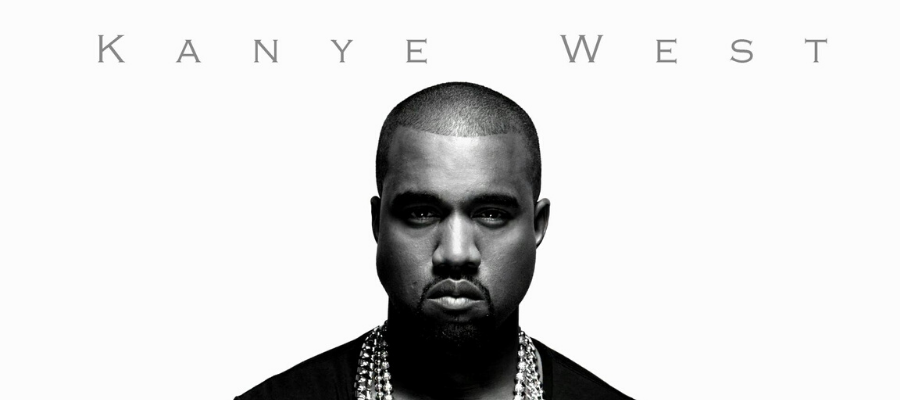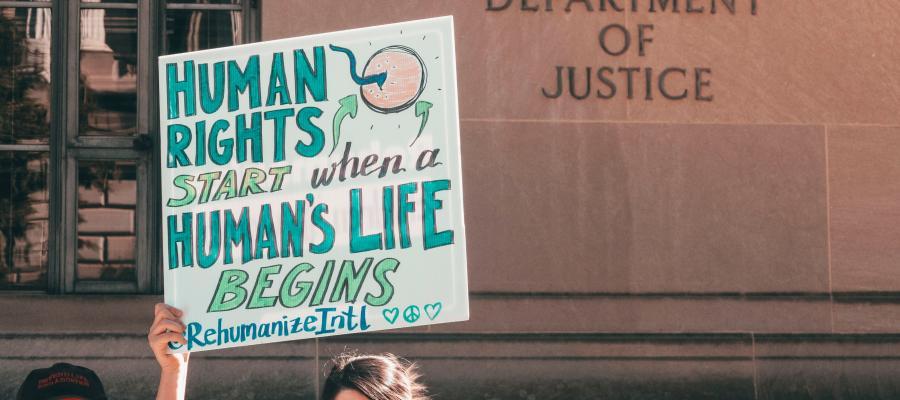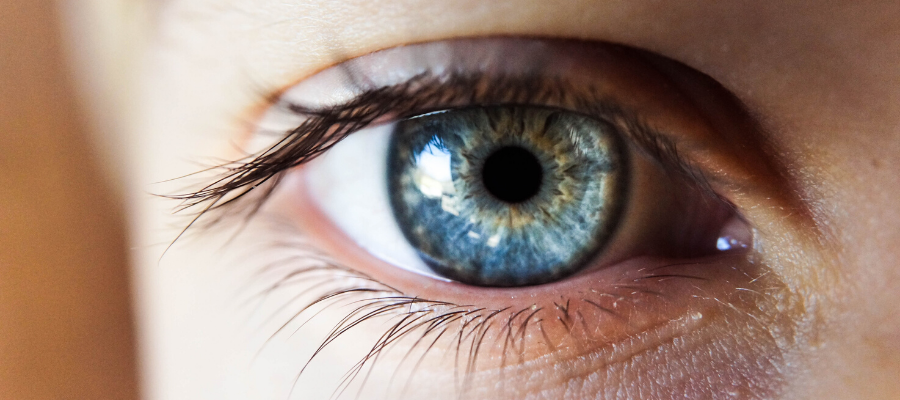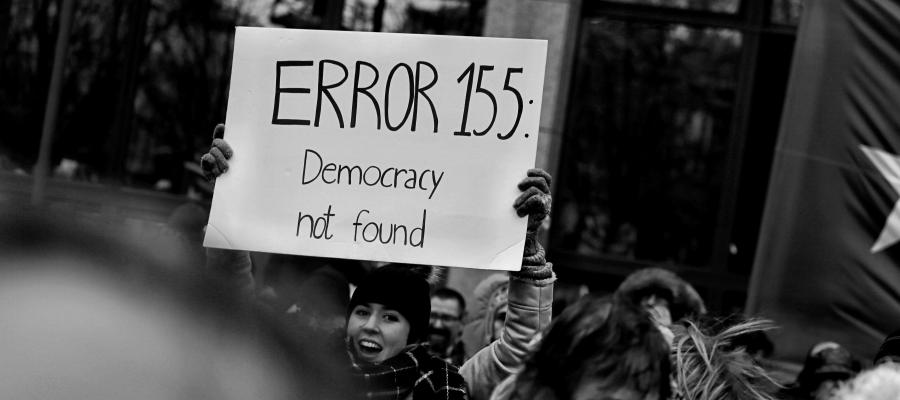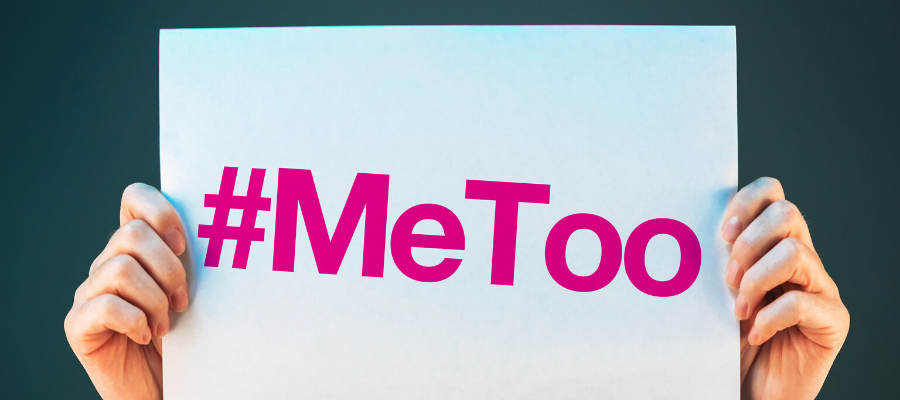Transcending Intersectionality
13
Apr 2017
These days, at least in certain feminist circles, something called intersectional analysis is all the rage. I was reminded of this fact recently by an intense dinner conversation with a group of friends and acquaintances. In response to something somebody said, I tried to make the point that while for some men the world may be their oyster, there are plenty of men who are relentlessly grinded down by the world. What about all the men of color in prison, I asked? What about all the Appalachian white men, cast aside by relentless globalism? The impatient response came back. “But let’s bracket...
Read moreWhen Driverless Cars Must Choose
01
Aug 2017
Will driverless technology someday make human drivers obsolete? Would you be willing to trust your safety to a mere algorithm? What if you knew that the algorithm might decide to sacrifice your life to save the lives of others? These are just some of the questions we discuss in this week’s episode—Driverless Cars at the Moral Crossroads. We human beings are terrible drivers. Think about it—we text and drive, we drink and drive, we drive while half asleep. Part of me would gladly take a computer over a human behind the wheel almost any day of the week. On the other hand, I love driving stick...
Read moreThe Wrong Abortion Question
31
Oct 2018
Is abortion the murder of an innocent child, or the exercise of a woman’s right to control her own body? Or maybe we’re focusing on the wrong question. Abortion is a “wedge issue” that divides Americans into a “pro-life” side that believes a fetus is a person with rights, and “pro-choice” side that believes fetus is a clump of cells which is morally insignificant when weighed against the right to bodily autonomy. Having two sides shout at each other obscures other serious obstacles to reproductive rights in the US—obstacles that both sides of the abortion debate should agree about....
Read moreWhy Not Change Your Core Self?
25
Oct 2019
Let’s say you could snap your fingers and all your various tastes and aesthetic preferences would change overnight. You would appreciate different foods, you would like different books, you would prefer different colors and clothing styles and jokes. Would you do it? I’m guessing your answer is a clear ‘no.’ I would say ‘no’ too. But why? Why not switch? The answer might at first seem easy. It would be really inconvenient to gain an entirely new set of preferences. You’ve set your life up around the ones you already have and you’ve made friends who like the same sorts of...
Read moreImproving the World vs Improving my Country
20
Jun 2005
Thanks to Peter Singer for helping us to put on a good show yesterday. It was certainly an interesting, lively conversation. The phone lines were constantly filled. So we do seem to have touched some nerve. Unfortunately, there were many more callers than we had time to get to. By the way, Singer's book, One World : The Ethics of Globalization, in which he spells out more fully some of the ideas he touched on during the show, is a really good read. It covers a whole lot of ground in a philosophically...
Read moreDeadly Thought Experiments
06
Feb 2017
Consider the now-famous philosophical thought experiment, the trolley problem. An out-of-control train is barrelling into five railroad construction workers, and as an onlooker, you notice a lever that you could pull to divert the train to a track with only one worker. Do you pull the lever? Should you pull the lever? Putting aside substantive answers to these questions, philosopher Julian Baggini writes on Aeon about drawbacks and insights from using thought experiments that put hypothetical lives on the line. People worry about violence in video games normalizing violence for children and...
Read moreThe Ethics of Torture
09
Apr 2010
Is water-boarding torture? If it is, does that make it wrong? Always? Usually? What is torture, and why is it always, usually, or sometimes wrong? Almost every dictionary gives two definitions of torture: a narrow one… inflicting great pain. And a broad one… severe mental anxiety and suffering. Water-boarding clearly counts as torture by the second definition, perhaps the issue isn't clear given the first definition. But sure if our topic is the ethics, or morality, of torture, we need the more inclusive definition – severe mental anxiety and...
Read moreAfterlife
16
Mar 2007
David Hume died in August, 1776, at the age of 65 --- rather young, by my standards (I'm 64) but not unusually so for that age, I guess. The death is well-documented in literature. Realizing that he was dying, Hume wrote his short, charming Autobiography. His student and friend Adam Smith wrote a moving account of Hume's last days. And, most interesting for our purposes, his fellow Scot James Boswell, most famous for his biography of Dr. Johnson, at Johnson's urging, visited Hume to see if the old infidel's skepticism about an afterlife was shaken as death...
Read moreTainted by the Sins of Our Fathers?
21
Jul 2014
This week, we’re discussing moral taint and collective responsibility. We’re asking the question, “Can we be tainted by the sins of our Fathers?” You might think that the answer is that we certainly can. Adam and Eve ate that darned apple and tainted all humankind with Original Sin. Now I know that that’s the biblical theory… but, frankly, I don’t get it. I have never gotten it. They ate the apple. Not us. Why would a loving God hold us – their descendants – responsible for what they did? What kind of...
Read moreThinking Inside the Box
22
Oct 2011
This week, we are “Thinking Inside the Box!” The box we have in mind? Television -- of all things. We’re looking at TV through the lens of philosophy. Now we admit that television is often descried as a “vast wasteland” of mind-numbing entertainment. That’s how Newton N. Minnow, former chair of the FCC, described the medium, in a very famous speech, way back described in the 60’s. And for his efforts, he got a shipped named after him – the S. S. Minnow of Gilligan Island fame. Certainly there was...
Read moreCan Words Kill?
12
Dec 2017
Can words kill? You might think that the obvious answer is that words don’t kill—people do! And, people don’t even kill with words, they kill with bombs and guns. But is there some sense in words can be just as deadly as a gun or a bomb? I don’t mean that in a metaphorical sense. We all can admit that words can hurt or offend. But I’m asking if they can literally kill? Consider how the words that the Nazis used to torment their Jewish victims, or the words the Hutu used on the Tutsi. They did more than merely incite violence against those targeted. Their words were instruments of...
Read moreIs Kanye a Philosopher?
22
May 2018
Kanye West, best known for his music career, is now expanding into philosophy, as revealed in an interview with his interior designer. But the 'book' Kanye has in mind will find its medium not in printed pages, but in real-time tweets. He's thus far expounded on consciousness and the ownership of ideas—all in the 280 characters, of course. Can a series of tweets really constitute a book? And should we now consider Kanye a philosopher? Read more here: https://www.theguardian.com/music/2018/apr/18/kanye-west-twitter-return-philosophy-book
Read moreAbortion and Humanity
12
Oct 2020
In my last blog I discussed how some opponents of abortion misappropriate my work on dehumanization to support their position. They claim that abortion advocates dehumanize the unborn, and that abortion is analogous to genocidal murder. I explained why this argument doesn’t work. My theory of dehumanization—as described, for instance, in my most recent book On Inhumanity—is that dehumanizing others boils down to conceiving of them as subhuman creatures in human form. But even the most ardent supporters of a women’s right to choose do not conceive of the unborn as vicious monsters or...
Read moreOlfactory Philosophy
22
Mar 2023
When philosophers talk about perception, they tend to focus on what we see and hear, and rarely on what we smell. But olfaction is a strange sense that deserves greater philosophical scrutiny. For example, when you see something, it's usually clear what you're looking at: a person or a chair, say. But when you smell something, what exactly is it that you're smelling? The naive view of olfaction might suggest that when you're smelling, say, a delicious loaf of bread, you're just directly smelling a delicious loaf of bread. But the problem with this view is that often what we...
Read moreAltered States of Consciousness
19
May 2016
It’s not that difficult to alter your consciousness. You might start your day with a stimulating cup of coffee, or end it with a relaxing cocktail. Even without imbibing any substances, you can alter your consciousness by doing various activities, like yoga, meditation, or with a simple walk in the woods. But if you really want a powerful, fast, and direct way to get into a radically altered state, try taking a mind-altering drug, like LSD, peyote, or ayahuasca. Humans have been altering their consciousness with psychedelics for millennia, but it’s only fairly recently...
Read moreScience and Politics: Friends or Foes?
12
Jun 2015
This week, we’re thinking about the relationship between science and politics. Are they friends or foes? I can get myself in a cynical frame of mind in which I think to myself that whether they are friends or foes depends on where the money is. I'm kidding -- sort of. I mean have you ever met a politician who was against an expensive boondoggle -- like the space station or the super-conducting super-collider -- that was about to be built in his or her district? Plus, ask yourself how many politicians turn a blind eye to...
Read moreTruth and Progress in Philosophy
06
Jun 2017
One of the things that students find frustrating about philosophy is that they don’t get definitive answers to the sorts of questions that philosophers ask. These students aren’t frustrated because philosophy doesn’t give them any answers. They’re frustrated because it gives them too many answers. For example, I teach a course on freedom and determinism in which the students learn (a) that the macroscopic universe is deterministic, so free will doesn’t exist, (b) that we can make choices that aren’t determined by prior events, so free will exists, or (c) that the macroscopic universe...
Read moreAuthority and Resistance
22
Apr 2019
This week we take up the topic of authority and resistance. We live in an age in which many of the old, top-down authority structures are collapsing before our very eyes. In large measure, the collapse of top-down authority is due to the “democratizing” effect of technology, especially, but not only, the internet. The democratization of information is having an effect on our politics, on the media, on medicine, even on education. Does the collapse of top-down authority mean the rise of anarchy and chaos? Or can there be authority without hierarchy? Who...
Read moreProust and Social Distance
22
Apr 2020
Marcel Proust once wrote about a hypothetical sufferer of “spiritual depression.” Here’s a passage from it that resonates, in these days of forced interiority: He has no real incapacity that prevents him from working, walking, eating, being out in the cold, but he finds it impossible to will the various acts he is otherwise perfectly able to perform… If you, like me, have walled yourself up at home for a few weeks—and are lucky enough not to suffer from anything more serious than the spiritual depression described above—then you might recognize yourself in this...
Read moreBeauty: Skin-Deep, in the Eye of the Beholder and Valuable?
13
Mar 2005
Posted by Alexander Nehamas Let me make some dogmatic remarks about beauty and subjectivity. We can discuss them in more detail on the air tomorrow. There is such a thing as beauty that is only skin-deep. It is the beauty of appearance, what we call "looking good." It has little to do with personality, character, wit or morality, and that is because anything that applies to how things look is not a reliable guide to many of their other qualities. The beauty of appearance -- what we can judge, say, by looking at a photograph of a face -- is something that psychologists...
Read moreOn the Absence of Dogmatism
12
Mar 2005
During our episode on Religion and the Secular State Robert Audi claimed that some religions are non-dogmatic He might be right about that, I am not sure which ones he had in mind. On the other hand, John was pushing the line that many of our "secular" beliefs have pretty much the status and function of dogmatic religious beliefs. At least for some people, he might be right about that. I recall that at least one caller agreed with John's remark. I still insist that if we are to have a shared public life that reflects what ...
Read moreReading, Narrative, and the Self
26
Nov 2010
This week’s topic is Reading, Narrative, and the Self. I suppose everybody has a pretty good idea of what each of those things, taken individually, means. Reading is something that most people do. A good narrative -- or story, to use a less fancy term -- is something most people enjoy. And a self is something everybody has. But I think I need to explain what reading, narrative, and the self have to do with each other. I’ll take them in reverse order, starting with the self. Everybody has a self...
Read moreWelcome Valley Public Radio Listeners
09
Dec 2008
We at Philosophy Talk are really pleased to begin airing on Valley Public Radio, covering Fresno, Bakersfield, and California's Central Valley, beginning Thursday December 11th at 7pm. We're really excited about the opportunity to engage with you all about life, love, culture, science, religion and the whole range of topics we cover on our show. Before we before we actually began to air on Valley Public Radio, we had an opportunity to appear live in front of audience from the Central Valley. Just over a year ago we took the show on the road to...
Read moreThe George W. Bush Presidential Library and Museum
03
May 2013
Last week saw the dedication of the George W. Bush Presidential Library and Museum, situated on the campus of Southern Methodist University. The project is the result of one half billion dollars in fundraising. Its dedication was attended by every living president, from James Carter, through a wheelchair bound George H.W. Bush, to a spry, and comparatively young, Barack Obama. For a brief moment, it occupied national and international attention, with most major American news sources adding their particular take to a very well worn story. Here is a sampling of journalistic fare from the...
Read moreMisogyny and Gender Inequality
23
Feb 2018
This week we’re thinking about misogyny and gender inequality. All over the world, men enjoy power and privilege relative to women. It’s always been that way, and probably always will be. But one could also have more hope, given that in some countries women have made a lot of progress. A hundred years ago, women in the US couldn’t vote. Now you find women occupying positions at the very top of the social hierarchy. There are women CEOs, women scientists, women lawyers, women senators. Then again, one might also think the #MeToo movement shows how far we still have to go. Women are still...
Read more








